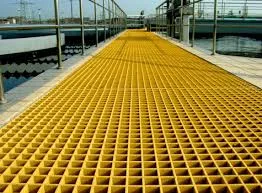
-
 Afrikaans
Afrikaans -
 Albanian
Albanian -
 Amharic
Amharic -
 Arabic
Arabic -
 Armenian
Armenian -
 Azerbaijani
Azerbaijani -
 Basque
Basque -
 Belarusian
Belarusian -
 Bengali
Bengali -
 Bosnian
Bosnian -
 Bulgarian
Bulgarian -
 Catalan
Catalan -
 Cebuano
Cebuano -
 China
China -
 China (Taiwan)
China (Taiwan) -
 Corsican
Corsican -
 Croatian
Croatian -
 Czech
Czech -
 Danish
Danish -
 Dutch
Dutch -
 English
English -
 Esperanto
Esperanto -
 Estonian
Estonian -
 Finnish
Finnish -
 French
French -
 Frisian
Frisian -
 Galician
Galician -
 Georgian
Georgian -
 German
German -
 Greek
Greek -
 Gujarati
Gujarati -
 Haitian Creole
Haitian Creole -
 hausa
hausa -
 hawaiian
hawaiian -
 Hebrew
Hebrew -
 Hindi
Hindi -
 Miao
Miao -
 Hungarian
Hungarian -
 Icelandic
Icelandic -
 igbo
igbo -
 Indonesian
Indonesian -
 irish
irish -
 Italian
Italian -
 Japanese
Japanese -
 Javanese
Javanese -
 Kannada
Kannada -
 kazakh
kazakh -
 Khmer
Khmer -
 Rwandese
Rwandese -
 Korean
Korean -
 Kurdish
Kurdish -
 Kyrgyz
Kyrgyz -
 Lao
Lao -
 Latin
Latin -
 Latvian
Latvian -
 Lithuanian
Lithuanian -
 Luxembourgish
Luxembourgish -
 Macedonian
Macedonian -
 Malgashi
Malgashi -
 Malay
Malay -
 Malayalam
Malayalam -
 Maltese
Maltese -
 Maori
Maori -
 Marathi
Marathi -
 Mongolian
Mongolian -
 Myanmar
Myanmar -
 Nepali
Nepali -
 Norwegian
Norwegian -
 Norwegian
Norwegian -
 Occitan
Occitan -
 Pashto
Pashto -
 Persian
Persian -
 Polish
Polish -
 Portuguese
Portuguese -
 Punjabi
Punjabi -
 Romanian
Romanian -
 Russian
Russian -
 Samoan
Samoan -
 Scottish Gaelic
Scottish Gaelic -
 Serbian
Serbian -
 Sesotho
Sesotho -
 Shona
Shona -
 Sindhi
Sindhi -
 Sinhala
Sinhala -
 Slovak
Slovak -
 Slovenian
Slovenian -
 Somali
Somali -
 Spanish
Spanish -
 Sundanese
Sundanese -
 Swahili
Swahili -
 Swedish
Swedish -
 Tagalog
Tagalog -
 Tajik
Tajik -
 Tamil
Tamil -
 Tatar
Tatar -
 Telugu
Telugu -
 Thai
Thai -
 Turkish
Turkish -
 Turkmen
Turkmen -
 Ukrainian
Ukrainian -
 Urdu
Urdu -
 Uighur
Uighur -
 Uzbek
Uzbek -
 Vietnamese
Vietnamese -
 Welsh
Welsh -
 Bantu
Bantu -
 Yiddish
Yiddish -
 Yoruba
Yoruba -
 Zulu
Zulu
fiberglass vessels and tanks
Fiberglass Vessels and Tanks A Comprehensive Overview
Fiberglass vessels and tanks have gained immense popularity across various industries due to their unique properties and advantages. Composed of a matrix of glass fibers and resin, these structures boast an impressive combination of strength, durability, and resistance to corrosion. This article delves into the characteristics, applications, and benefits of fiberglass vessels and tanks, highlighting their pivotal role in contemporary manufacturing and storage solutions.
Properties of Fiberglass
One of the foremost advantages of fiberglass is its strength-to-weight ratio. Fiberglass is significantly lighter than traditional materials like steel and concrete, which translates into easier handling and lower shipping costs. This lightweight nature does not compromise its strength; in fact, fiberglass can withstand considerable impacts and stresses, making it ideal for applications that demand resilience.
Fiberglass is also highly resistant to corrosion, making it suitable for transporting and storing a wide range of substances, including chemicals, water, and oils. Unlike metal tanks, which can rust or degrade over time, fiberglass tanks retain their structural integrity even when exposed to harsh environments. Additionally, fiberglass is non-reactive, ensuring that the substances stored within do not undergo unwanted chemical reactions.
Applications of Fiberglass Vessels and Tanks
Fiberglass vessels and tanks are utilized in various industries, including marine, agricultural, chemical, and wastewater management. In the marine sector, fiberglass boats and yachts are not only popular for their lightweight and easy-to-maneuver qualities but also for their resistance to water and ultraviolet (UV) rays. This has allowed for the design of sleek, durable vessels that require less maintenance compared to their wooden or metal counterparts.
fiberglass vessels and tanks

In agricultural settings, fiberglass tanks are often used for storing water, fertilizers, and other agricultural chemicals
. Their durability and resistance to corrosion make them ideal for outdoor exposure, ensuring that the contents remain uncontaminated and safe for use.Chemical manufacturing is another prominent field where fiberglass tanks are indispensable. These tanks can safely store various corrosive substances, withstanding the demanding conditions and preventing leaks that could pose significant environmental risks. Similarly, in wastewater treatment facilities, fiberglass tanks are utilized for their ability to resist chemicals and provide reliable long-term storage solutions.
Benefits of Fiberglass
The benefits of fiberglass vessels and tanks extend beyond their physical properties. Their lightweight nature contributes to reduced transportation costs and easier installation. Furthermore, fiberglass can be molded into complex shapes, providing greater design flexibility when creating custom tanks or vessels for specific needs.
In terms of maintenance, fiberglass requires far less upkeep compared to traditional materials. Its resistance to corrosion means that it does not require regular painting or rust prevention treatments, resulting in lower long-term costs.
In conclusion, fiberglass vessels and tanks represent an innovative solution that meets the demands of modern industry. Their strength, durability, and resistance to corrosion make them indispensable in sectors ranging from maritime to chemical processing. As technology continues to advance, the use of fiberglass is likely to expand, providing even more efficient and sustainable options for storage and transportation across diverse applications.









